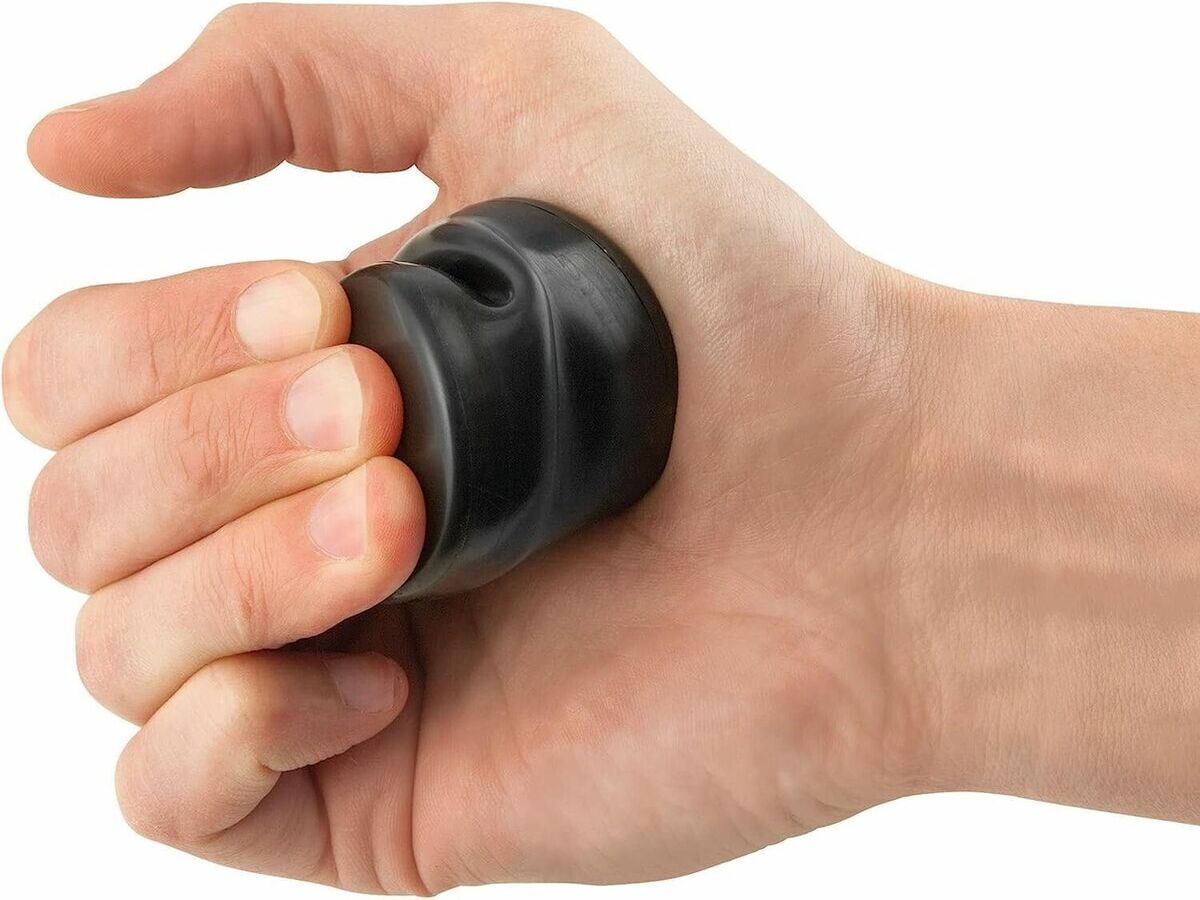

FAQs
How To Make Yourself Burp And Fart
Modified: August 5, 2023
Learn how to naturally make yourself burp and fart with these general questions. Find out the best techniques and remedies to relieve discomfort.
(Many of the links in this article redirect to a specific reviewed product. Your purchase of these products through affiliate links helps to generate commission for Under-tec.com, at no extra cost. Learn more)
Table of Contents
Introduction
Welcome to the wonderful world of bodily functions! While some may find it uncomfortable or embarrassing to discuss, burping and farting are natural and essential processes that our bodies go through. They may not always be the most pleasant or polite of actions, but they serve an important purpose in maintaining our overall health and comfort.
Burping, also known as belching, is the process of expelling gas from the stomach through the mouth. It is a way for your body to release excess air that has built up in your stomach during the process of digestion. On the other hand, farting, also known as flatulence, is the release of gas from the intestines through the rectum. This gas is produced as a byproduct of the digestive process and is a normal part of our body’s functioning.
While burping and farting are natural bodily functions, some people may experience difficulties in doing them. Whether it’s due to indigestion, bloating, or other factors, feeling the need to burp or fart without being able to can lead to discomfort and even pain. In such cases, it can be helpful to know some techniques that can help facilitate these processes and provide relief.
In this article, we will explore various techniques to make yourself burp and fart. From simple methods that involve changing your body position to more advanced techniques like using specific foods or drinks, we will cover a range of strategies to help you find relief when you need it most. However, it’s important to note that while these techniques can be effective for some, they may not work for everyone. If you are experiencing consistent digestive issues or discomfort, it is advisable to consult with a healthcare professional for a more personalized approach.
So, if you’re ready to delve into the world of belching and flatulence, let’s explore some of the techniques that can help you make yourself burp and fart!
Understanding the Importance of Burping and Farting
Although burping and farting may not be the most glamorous or socially accepted actions, they serve important functions in our body’s digestive system. Understanding their significance can help us appreciate their role and importance in maintaining our overall wellbeing.
When we eat or drink, our bodies go through the process of digestion to break down and absorb nutrients from the food. This process involves the release of various enzymes and chemicals in our stomach and intestines to break down the food particles into smaller components that can be absorbed by our body.
As a result of this digestion process, gases such as carbon dioxide, methane, and nitrogen can be produced. These gases can build up in our stomach and intestines, leading to feelings of bloating and discomfort. This is where burping and farting come into play.
Burping allows the excess air in our stomach to be released. When we swallow food or drinks, we also swallow air. This air can accumulate in our stomach, leading to feelings of fullness and the need to burp. By burping, we release this trapped air and provide relief from bloating and discomfort.
Farting, on the other hand, helps to release the gases that are produced in our intestines during the digestion process. These gases are byproducts of the breakdown of carbohydrates and other food components by bacteria in our intestines. By passing gas, we reduce the buildup of these gases, preventing excessive bloating and potential abdominal pain.
While burping and farting are natural processes, it’s important to note that excessive or frequent burping or farting can sometimes indicate underlying digestive issues. Conditions such as indigestion, acid reflux, or irritable bowel syndrome (IBS) can lead to excessive gas production and discomfort. If you experience persistent or severe symptoms, it is advisable to seek medical advice to rule out any underlying conditions and receive appropriate treatment.
Now that we have a better understanding of why burping and farting are essential, let’s explore some techniques to help us facilitate these processes when needed.
Techniques to Make Yourself Burp
Feeling the need to burp but unable to do so can be uncomfortable. Luckily, there are several techniques you can try to help facilitate the burping process and find relief from the buildup of excessive air in your stomach. Below, we will explore some effective techniques to make yourself burp.
-
Drink carbonated beverages: Carbonated beverages like soda or sparkling water can help induce burping. The carbonation releases bubbles in your stomach, which can stimulate the reflex to burp. Take small sips and allow the carbonation to build up before trying to burp.
-
Change your body position: Sometimes, changing your body position can help release trapped air. Try standing up straight or leaning forward slightly, as this can help shift the position of the air in your stomach and make it easier to burp.
-
Swallow air: This technique may sound counterintuitive, but swallowing air intentionally can help trigger a burp. You can do this by taking a deep breath and swallowing air, as if you were trying to hold your breath. Then, try to burp to release the trapped air.
-
Mechanical stimulation: Gently tapping or massaging your chest and upper abdomen can stimulate the release of trapped air. Use your fingertips to tap or apply light pressure in a circular motion around your chest and upper belly area to help encourage burping.
-
Over-the-counter remedies: There are over-the-counter products available, such as antacids containing simethicone, that can help break up gas bubbles and provide relief from bloating. Follow the instructions on the product label or consult your pharmacist for guidance.
It’s important to note that while these techniques can be effective for many people, they may not work for everyone. If you experience chronic or severe bloating or are unable to burp despite trying these techniques, it is advisable to consult with a healthcare professional for further evaluation and guidance.
Now that we’ve explored techniques to facilitate burping, let’s move on to discover ways to make yourself fart when you’re feeling gassy.
Techniques to Make Yourself Fart
Feeling gassy and unable to release the trapped gas from your intestines can be uncomfortable and even painful. Fortunately, there are techniques you can try to stimulate the release of gas and find relief. Here are some effective techniques to make yourself fart:
-
Change your body position: Similar to burping, changing your body position can help release trapped gas in your intestines. Try lying on your back and bringing your knees towards your chest, or gently massaging your abdomen in a circular motion to stimulate the movement of gas.
-
Exercise: Physical activity, especially exercises that involve bending and stretching your body, can help stimulate the movement of gas through your intestines. Activities like walking, yoga, or gentle abdominal exercises can be beneficial in relieving trapped gas and facilitating farting.
-
Intentional relaxation: Stress and tension can contribute to gas buildup in your abdomen. Engaging in relaxation techniques, such as deep breathing exercises, meditation, or practicing yoga, can help relax your muscles and potentially stimulate farting.
-
Probiotics and dietary changes: Consuming foods that contain probiotics, such as yogurt or fermented foods, can help promote a healthy balance of gut bacteria and aid in digestion, potentially reducing gas production. Additionally, avoiding foods known to cause gas, such as beans, broccoli, cabbage, and carbonated drinks, may help alleviate gas buildup.
-
Over-the-counter remedies: There are over-the-counter products available, such as simethicone or activated charcoal, that can help break up gas bubbles and provide relief from bloating. These remedies can help stimulate farting and ease discomfort. However, it is important to follow the instructions on the product label and consult a healthcare professional if you have any concerns or if symptoms persist.
Just like with the techniques for burping, it’s important to remember that everyone’s body is different, and what works for one person may not work for another. If you experience chronic or severe bloating, excessive gas, or discomfort, it is recommended to seek medical advice to rule out any underlying conditions and for personalized guidance.
Now that we’ve explored techniques to make yourself burp and fart, it’s essential to consider some precautions and potential risks associated with these processes.
Precautions and Risks to Consider
While the techniques discussed above can be helpful in facilitating burping and farting, it’s crucial to approach them with caution and be aware of potential risks. Here are some precautions and risks to consider:
-
Be mindful of your body’s natural processes: It’s important to remember that burping and farting are natural bodily functions. Trying to force these actions excessively or too frequently can disrupt the normal functioning of your digestive system. Allow your body to naturally release gas when needed, and only try the techniques mentioned if you’re experiencing discomfort.
-
Individual differences: Not all techniques will work for everyone. Each person’s body is unique, and what may be effective for one individual may not work for another. It’s essential to listen to your body and find the techniques that provide you with the most relief.
-
Underlying health conditions: Chronic or severe bloating, excessive gas, or digestive discomfort may be indicators of underlying health conditions. If you experience persistent or worsening symptoms, it’s recommended to consult with a healthcare professional for a proper diagnosis and treatment.
-
Consultation with healthcare professionals: Before trying any over-the-counter remedies or making significant changes to your diet, it’s advisable to consult with a healthcare professional, especially if you have any existing health conditions or are taking medications that may interact with these remedies.
-
Allergies and sensitivities: When trying dietary changes or introducing new foods, it’s important to be cautious if you have known allergies or sensitivities. Pay attention to your body’s reactions and consult with a healthcare professional if you have any concerns.
Remember, these techniques are intended to provide relief from occasional discomfort associated with excess gas buildup. If you consistently experience digestive issues, it’s important to seek medical advice for a proper evaluation and personalized recommendations.
Incorporating healthy lifestyle habits such as maintaining a balanced diet, staying hydrated, practicing regular physical activity, and managing stress can also contribute to optimal digestive health and reduce the occurrence of excessive gas.
Now that we’ve discussed precautions and risks, let’s conclude this article by summarizing the key takeaways and the importance of understanding our body’s natural processes.
Conclusion
Understanding our body’s natural processes, such as burping and farting, is essential for maintaining overall well-being and digestive health. While these functions may seem unglamorous or socially frowned upon, they serve important purposes in releasing excess air and gas that can cause discomfort and bloating.
In this article, we explored various techniques to make yourself burp and fart. From drinking carbonated beverages and changing body positions to using over-the-counter remedies and making dietary adjustments, these techniques can help provide relief from excessive gas buildup.
However, it’s important to approach these techniques with caution and be mindful of your body’s natural processes. Everyone’s body is unique, and what works for one person may not work for another. It’s also important to be aware of any underlying health conditions and consult with a healthcare professional if you experience persistent or severe symptoms.
By incorporating healthy lifestyle habits, such as maintaining a balanced diet, staying hydrated, practicing regular physical activity, and managing stress, you can promote optimal digestive health and reduce the occurrence of excessive gas.
Remember, burping and farting are normal bodily functions. While they may not always be the most pleasant or acceptable in social situations, they play a crucial role in maintaining our comfort and relieving discomfort.
So, the next time you feel the need to burp or fart, you can try some of the techniques discussed in this article to find relief and ensure your digestive system remains balanced and healthy.
Embrace the natural processes of your body with understanding and acceptance, and may you experience a harmonious and comfortable digestive journey!










